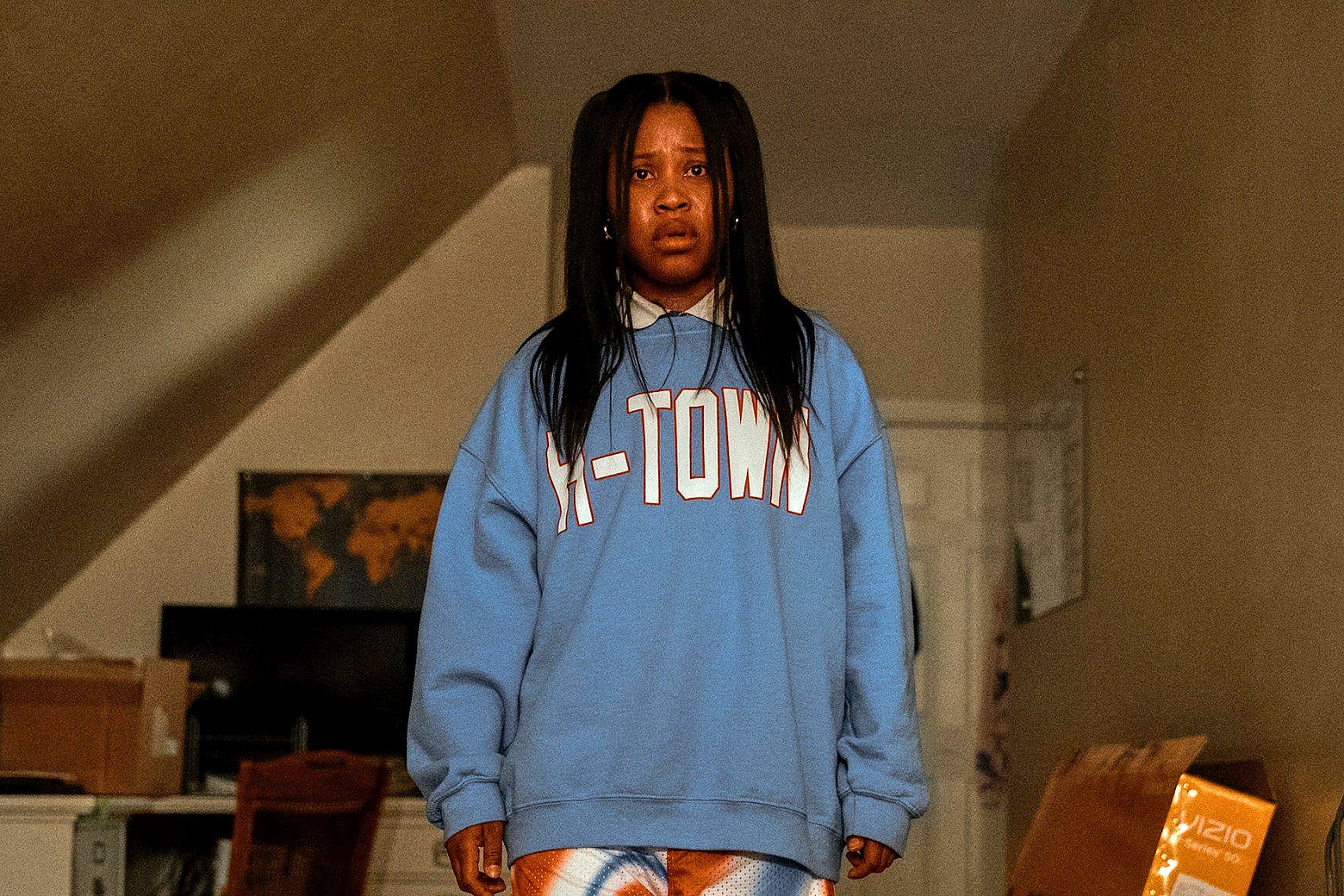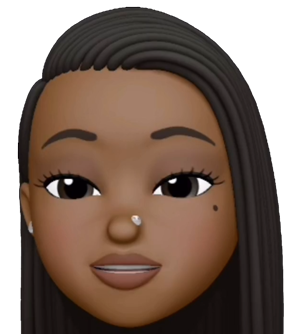I’m part of the BeyHive. There’s a lot else this show could have done.

Amazon Studios
“Who’s your favorite artist?” Dre, played by Dominique Fishback, repeatedly asks throughout Donald Glover and Janine Nabers’ new show Swarm, a sort-of commentary on stan culture, largely drawing from the real-life antics of Beyoncé’s fandom, the BeyHive. Fishback menacingly gleams in an incredible performance as a young Black woman who is a devout fan of mega-popstar Ni’Jah, a fictional stand-in for Beyoncé. As Dre’s mental health devolves, her longtime obsession with Ni’Jah increases, making for a deeply disturbing ride that attempts to comment on the toxicity of stan culture via Glover’s signature Black surrealism.
But Swarm, which premieres as a full seven-episode season on Prime on Friday, doesn’t entirely stitch the two together, too committed to its goal of depicting a scandalous faction of fandom while making a light mockery of the world around it to really come away with much of a point—or even an engaging question. The first half of the show follows a sort of wash-rinse-repeat format, charting the depths of Dre’s mental devolution as she, a fan who is disgusted by others’ lack of Ni’Jah appreciation and interest, travels across the country, leaving a trail of violent dissatisfaction with a seemingly tasteless world behind her. This is interesting, and it would be a good start to a fictionalized commentary on fandom if it weren’t so muddled. Dre’s motives are a melting pot. She is in a deep state of grief and is, before her road trip, depicted as likely neurodivergent and (as we are soon to find out) severely mentally ill. Her identity as a fan is wrapped up in this, of course, but it is not the only factor—and arguably, at the start, not even the driving factor—in her full descent into madness.
What are we supposed to take away from Swarm’s first few bloody episodes, beyond the idea that stan culture can be toxic for all involved parties? And how do we actually engage with whatever Swarm is trying to say about fandom, when we can’t necessarily assert that it is mostly Dre’s devotion to her idol that causes her to act on her violent urges? This isn’t to say that the show can’t, or shouldn’t, show fandom as being toxic. In fact, the show’s main events are based on real-life acts of violence and actual Beyoncé news cycles. But what can Swarm say about culture without really showing more of it beyond one person? Nearly every episode starts with a smart twist on a familiar disclaimer: “This is not a work of fiction. Any similarity to actual persons, living or dead, or actual events is intentional.” However, as a BeyHive member myself, I am unsure what to take away from what is supposed to be a mirror held up to my own obsession, if stannish feelings are not even the biggest thing Dre, and by extension the audience, is grappling with. When Dre already exists as a hyperbolic version of a stan, much akin to the guy from the Eminem song the term comes from, but also nearly exclusively interacts with minor characters who are also parodically overdrawn, then there is no basis in reality for the audience to find its footing and engage with any deeper social commentary.
Swarm somewhat resets in the second half of the show—starting with an episode that follows Dre getting involved in a feminine spiritual cult and falling victim to the commune’s leader (fantastically played by pop star Billie Eilish), who forces Dre to trade sensitive information on her past as currency in exchange for aid with self-improvement. From then on, Dre becomes less of a symbol of the real-life BeyHive and more of a fully formed character whose sadistic tendencies and addictive habits are addressed head-on. Dre is still a Ni’Jah stan, of course, but her backstory becomes much more integrated into the foundation of the character, which allows her identity as a stan to shine clearer. When Swarm lets go of its premise a little, that actually helps it achieve its goal, allowing us to finally cash in on the show’s promise.
Swarm’s second half offers a much more realistic portrayal of fandom as well. The story becomes less about Dre being hellbent on seeking out the anti-Ni’Jah population of the world and more about her inability to exist in peace without hearing other people’s unprompted negative opinions of her favorite artist in her mind. Dre often asks, “Who’s your favorite artist?” but it’s when she doesn’t ask and hears the answer anyway that it feels real. It’s also in the later episodes that Swarm finally includes more grounded ancillary characters and opens itself up to what the world thinks of Dre, and of Ni’Jah’s Swarm as a whole. This is best evidenced in the show’s sixth episode, a truly genius half hour of television that’s in the form of a meta-documentary about the Black female detective who is attempting to solve Dre’s case. It is here, finally, that we see another member of the Swarm, one who feels instantly recognizable, commenting on the Swarm itself. We get to zoom out for a much-needed second, have a few of our more logistical questions answered, and think about some of the show’s points from a non-Dre point of view.
The thing about stan culture is that it is just that: culture. Like any culture, there’s an internal politics—the fan-to-fan interactions, the fan-to-artist interactions, the unspoken and explicit qualifications as to who deserves to claim membership, the self-evaluation on how you measure up to that standard, and more—but there’s also a reckoning with how the fandom is assessed from the outside. How you, as an individual fan, are assessed from the outside. I have, on many occasions, had my cultural opinions (music-related and otherwise) dismissed because I’m a Beyoncé fan, and people see us as sheep. I have found community in people who are also unafraid to say that Beyoncé is today’s greatest entertainer—and I have been shocked by the actual power that community holds to harass and disparage others. I have metaphorically prayed at the feet of an artist—by which I mean that I have used very flowery words to simply say that I feel seen. I, as a Black female fan of popular culture, have gatekept on racial grounds, unafraid to claim something for me and my people, who are forced to forfeit nearly every other instance of Black cultural production to the masses, whose consumption erases the work’s cultural and racial nuance for global palatability and profit. I have spent, or asked loved ones to spend, copious amounts of money for concert tickets, which represent a chance to exist in a space that was expressly made with me in mind, at least for a few hours. I have argued, lovingly and unlovingly, with people who think I’m foolish for not regretting that purchase. I have called others and have myself been called tasteless. Maybe I am; I am sure you are.
I can’t tell you what Swarm is trying to say about all of that except that it—newsflash—can sometimes be toxic. Stan culture is still awaiting a proper fictionalization that attempts to reckon with this particular type of group belonging, and with what it means to be unafraid to scream your membership proudly to whoever will listen. This deserves to be weighed heavily and thoughtfully, with as many of its myriad parts as can fit into a story. Fandoms, including the BeyHive, are already derided as being needlessly vicious and/or psychotic. They don’t need Swarm to do more of that one-sided job. And stan culture does not exist extraneously from even the people who seek to critique it. A much more useful question would be: What feeds this beast that has come to dominate much of our cultural consumption today? And why can’t we ever seem to properly satiate it?

